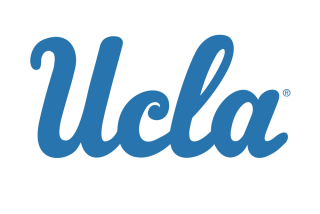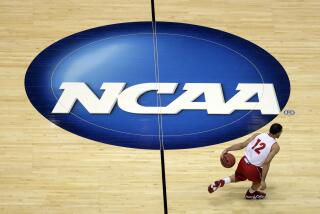NCAA and Big Ten sanctions against Penn State
- Share via
These are the sanctions imposed on Penn State by the NCAA and Big Ten Conference:
$60-million fine: To be paid over a five-year period, this is equal to about a year’s gross revenue from the football program. The money will go to an endowment for “programs preventing child sexual abuse and/or assisting the victims of child sexual abuse.” Penn State is not allowed to cut sports programs or scholarships to pay the penalty.
Postseason ban: Penn State can’t play in the Big Ten Conference championship game, or any bowl or playoff game, until the 2016 season.
Loss of scholarships: Penn State can sign only 15 recruits a year from 2013-16. Most teams can sign 25. From 2014-17, the football team can have only 65 players on scholarship — 20 fewer than the limit.
No-penalty transfers: Penn State football players are immediately eligible to transfer without having to sit out a year, and players who choose to stay at Penn State without competing in football may keep their scholarships as long as they maintain academic requirements.
Loss of bowl revenue: Penn State’s cut of Big Ten bowl revenue — estimated at about $13 million over four years — will be donated to charities in Big Ten communities “dedicated to the protection of children.”
Vacated wins: Penn State vacates its 112 football victories — 111 by the late Joe Paterno — from 1998-2011. That means Paterno is no longer the game’s winningest major-college coach. Ironically, Penn State and Paterno are still credited with 290 wins enjoyed while disgraced former assistant Jerry Sandusky was part of the football staff. The vacated results don’t count as losses for Penn State or wins for the opponent.
Consent decree: Penn State has agreed to adopt all the recommendations in the Freeh Report, which was written after an independent examination of the circumstances surrounding the Sandusky scandal. Among them, Penn State will:
Hire an independent monitor for its athletic department who will report to the NCAA, the Big Ten and the university’s board of trustees.
Appoint a compliance officer to lead a panel of faculty and senior administrators that will oversee ethics and legal matters.
Create a hot line for anonymous questions or disclosure of issues regarding athletic department and NCAA issues.
Provide annual training on “ethics, civility, standards of conduct and reporting of violations.”
Note: The NCAA also said it may impose additional penalties on individuals after the conclusion of criminal proceedings. Former vice president Gary Schultz and suspended Athletic Director Tim Curley are charged with perjury and failure to report suspected child abuse.
— Staff and wire reports
More to Read
Go beyond the scoreboard
Get the latest on L.A.'s teams in the daily Sports Report newsletter.
You may occasionally receive promotional content from the Los Angeles Times.










